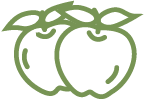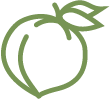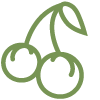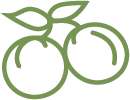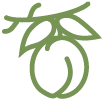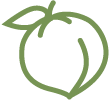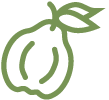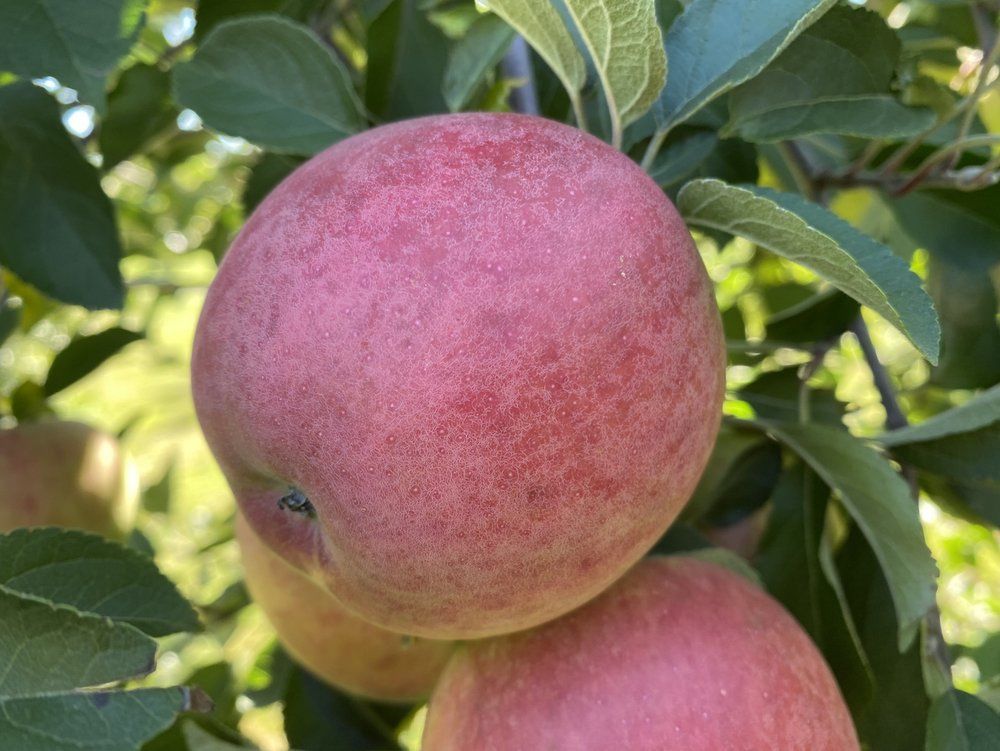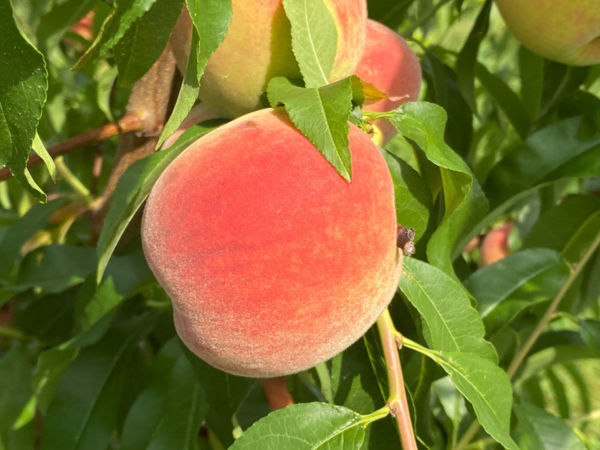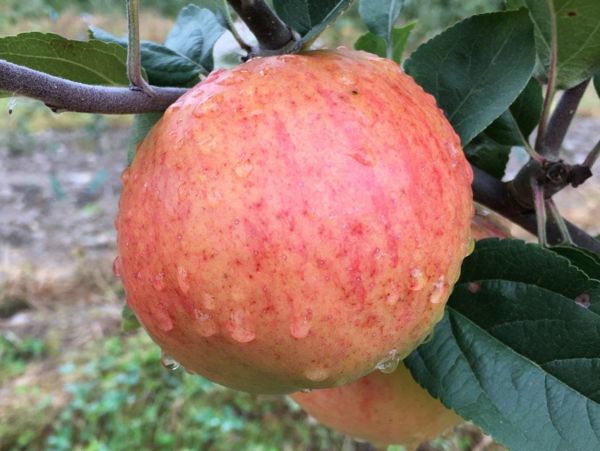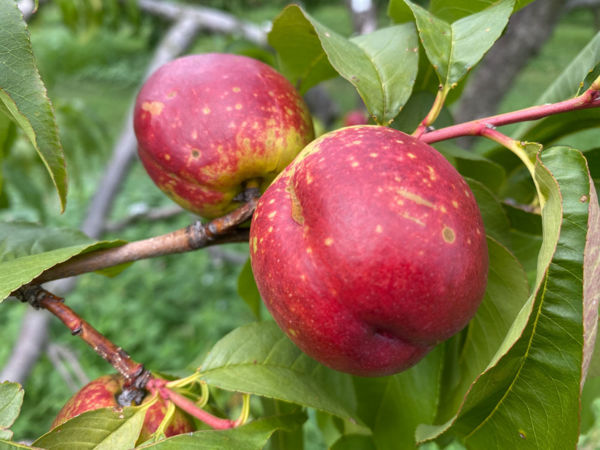An attractive, highly disease-resistant apple, ideal for organic growers.
Winesap, Virginia Apple Scionwood (Spring 2024)
A reliable, late-season American heirloom with good disease resistance. Also known as Virginia Winesap, Wine Sop, Holland's Red Winter, Royal Red.
Winesap is one of America's most beloved heirlooms apples, particularly in the southern states, where the variety performs well in spite of hot, dry summers and clay soils. The tree is moderately vigorous, slightly droopy, and crops reliably, though thinning will improve fruit size. It is highly resistant to cedar-apple rust, moderately resistant to powdery mildew and fireblight, but susceptible to scab. Although Winesap has an unusual and attractive pink bloom, it is triploid and cannot be used as a pollenizer; two diploid trees should be present for full fertility.
The apple is smallish, particularly if crops are not well thinned. The skin is a deep, dark purple-red over yellow with russeting around the stem. The flesh is yellowish, crisp, and juicy and firm enough to be a good baking apple. The spicy and vinous flavor also lends itself to cider making, and Albemarle Ciderworks make a single-variety cider from Virginia Winesap, which contains notes of "baked apple, cedar, and strawberry." These apples will store well for more than three months.
This was once one of the most widely propagated varieties in America. Although the ultimate origin of Winesap is unknown, Virginia Winesap is a redder sport of Winesap that grew in Troutville, Virginia in 1922. Stayman, Blacktwig, and Arkansas Black are all seedlings of Winesap.
Volume Pricing
| Quantity | Winesap, Virginia Apple Scion |
|---|---|
| 1 | $12.00 |
| 2-5 | $7.00 |
| 6-10 | $6.00 |
| 11-99 | $5.00 |
| 100+ | $4.00 |
The Fruit
Fruit Type
Category: Apple
Subcategory:
Heirloom, Cider, Disease-Resistant, Hot-Climate
Fruit Uses & Storage
Uses: fresh eating, cider, baking, storage, sauce
Cider classification: sweet,sharp
Storage duration: three plus months (approximate, depending on storage conditions)
Fruit Appearance
Skin color: red
Flesh color: yellow
Fruit Origins
Parentage: unknown
Origin: America
Introduced in: 1700s
Introduced by:
The Environment
Calendar & Geography
USDA zones: 5 - 8
Chill hours: Not yet determined
Ripening date: Nov 03 (approximate, in New York State) + 49 days after McIntosh
Diseases & Pests
glossary
Apple Scab: Susceptible
Cedar-Apple Rust: Very Resistant
Fireblight: Resistant
Powdery Mildew: Resistant
Pollination
Pollination Factors
glossary
Bloom group: 3
Is it self-fertile? N
Is it fertile? N
Ploidy: Triploid
Pollination Partners
This table shows the first few results from a full search for pollenizers of Winesap, Virginia Apple. Please see our Pollenizer Search to run other queries and read how the application uses various factors. Also read more about fruit tree pollination.
| Tree | Currently in Stock |
|---|---|
| Florina Apple | 0 |
| Porter's Perfection Apple | 0 |
| Spitzenburg Esopus Apple | 0 |
| Rubinette Apple | 0 |
| Virginia Crab Apple | 0 |
| Bramtot Apple | 0 |
| Binet Rouge Apple | 0 |
| Mother Apple | 0 |
| Repinaldo Do Liebana Apple | 0 |
| Melrose Apple | 0 |
| Muscadet De Dieppe Apple | 0 |
See all pollination matches for Winesap, Virginia Apple
Featured Products
A few things we're loving right now...
A full-flavored, freestone white peach.
A traditional semisharp cider apple from Spain.
A widely-grown, large, yellow-fleshed nectarine.

